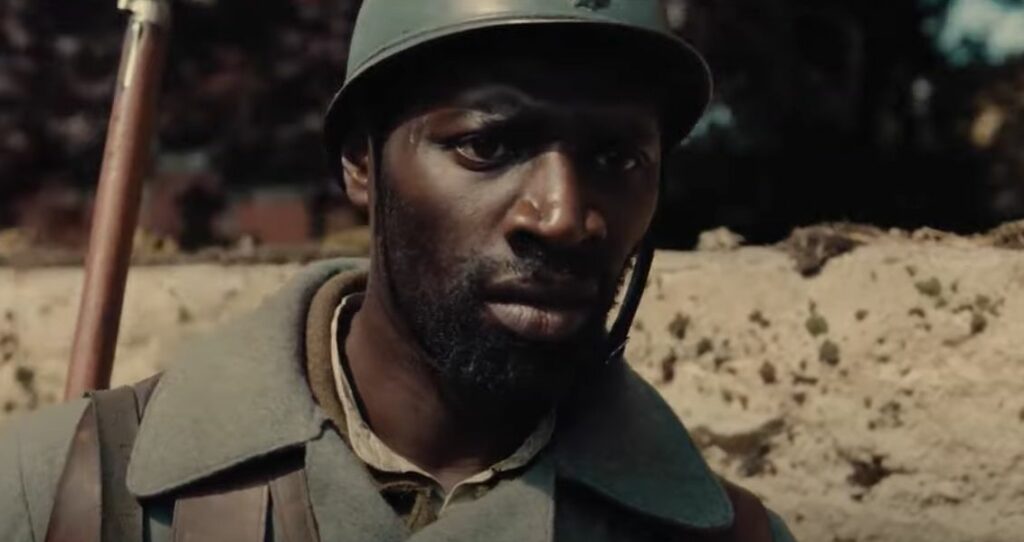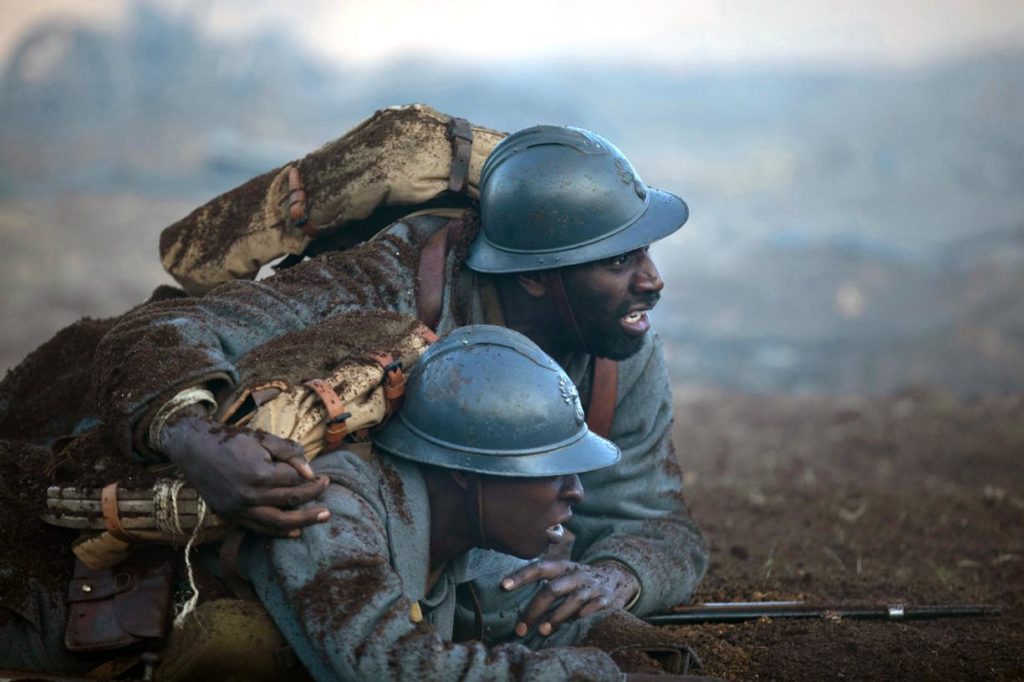"Tirailleurs", the new film with Omar Sy, shines a light on the story of colonial troops – the Senegalese Tirailleurs – in the First World War, where as many as 200,000 men were recruited, with more than 135,000 fighting in Europe. However, some of Sy's comments in the run-up to the movie have sparked a heated debate about racism in France.
As shown in one of the most powerful scenes in the film, the French military drafted troops into its ranks from the colonies – with many of them forced to fight for France. The Senegalese Tirailleurs were founded in 1857 with soldiers from all of sub-Saharan Africa with the aim of controlling French West Africa as well as assisting in the colonisation of other territories. In 1898, Algerian, Vietnamese and Senegalese troops all played a part in Madagascar’s annexation and conquest.
Tirailleurs in the trenches
In 1914, the Senegalese Tirailleurs were stationed in Morocco and at the outbreak of the First World War, were quickly transferred to France to fight on the Western Front. As many as 30,000 lost their lives in combat yet their contribution in the war effort remains a lesser-known chapter of the Great War. Most of these regiments have been overlooked by school textbooks or are lumped together as the “contribution of colonial troops.”
The film follows a father who enlists with his teenage son. Omar Sy – one of France’s most celebrated personalities of Senegalese origins – and film director, Mathieu Vadepied, set out to shine a light on the lives of the African men who were forced to fight for a country that was also its oppressor.
The Tirailleurs’ story has been so overlooked that Sy admits to having learnt first about the colonial forces contributing to the Second World War before realising they had also served in the trenches of the Great War. In an interview on RTL France, he stated that “associating tirailleurs and the poilus [informal nickname for French infantry in the Great War] was not something simple for me.”

Omar Sy plays a father who follows his son to war. Credit: Unité Korokoro / Tirailleurs Production
The film tackles the contradictions of colonialism through the prism of war, such as grouping together men from different nations and ethnicities in one regiment, simply because they were sub-Saharan Africans. Many spoke different languages, and numerous misunderstandings arose as most were not even French speakers. For many if not most, this was their first experience of France.
When speaking about the Tirailleurs’ legacy in Senegal, Sy draws from his own experience: one of his grandfather’s neighbours in Senegal fought in Indochina and would often parade in his uniform. However, he calls the legacy a mixture of “pride and shame.” Pride for having “worn the colours and served France.” Shame because these people were promised many things for their service – but have since been forgotten, leaving lingering feelings of humiliation.
Ukraine controversy and racism
In promoting the film, Sy’s comments in an interview with the Le Parisien questioned the way that Europe deals with conflict and how it sees itself. The actor stressed that it shouldn't take the Ukraine war to make Europeans understand the horrors of conflict (war is an ongoing reality in other parts of the world such as Yemen and Ethiopia).
"Ukraine was not a crazy revelation for me. As I have family elsewhere, in Africa, I know that there have always been children at war, broken families. It has never stopped since the Second World War. Does that mean that when it's in Africa, you are less affected?"

Credit: Unité Korokoro / Tirailleurs Production
The comments sparked outrage from France’s far-right and conservative media and political circles. Ironically, Sy’s anti-racism and anti-war messages were taken out of context and sparked a hostile reaction from people who could be perceived as being uncomfortable with the premise of the film.
"In a war it is humanity that sinks, even when it's the other side of the world. We are reminded that man is capable of invading, of attacking civilians and children. Yet we have the sense that it took [the war in] Ukraine to realise this."
The comments are not to minimise the suffering of the war in Ukraine but rather to draw attention to the mentality of Europeans vis-à-vis other cultures. While it is to be expected that Europeans are more concerned with a war happening on their own continent, the outrage neatly capitalises on the erasure of the Tirailleurs’ story.
In his interview with Le Parisien, Sy none too subtly points to a sense of superiority, on full display during the Covid-19 pandemic and the war in Ukraine: "I’ve seen this since I was a kid. When it's far away, you think that over there, they are savages, we don't do that anymore. Like Covid, in the beginning, we said: it's only the Chinese."
Put into context, his words penetrate the consciousness of Europeans where it hurts: the sacrifice and memories of the victims of colonialism – who are all too often forgotten.

